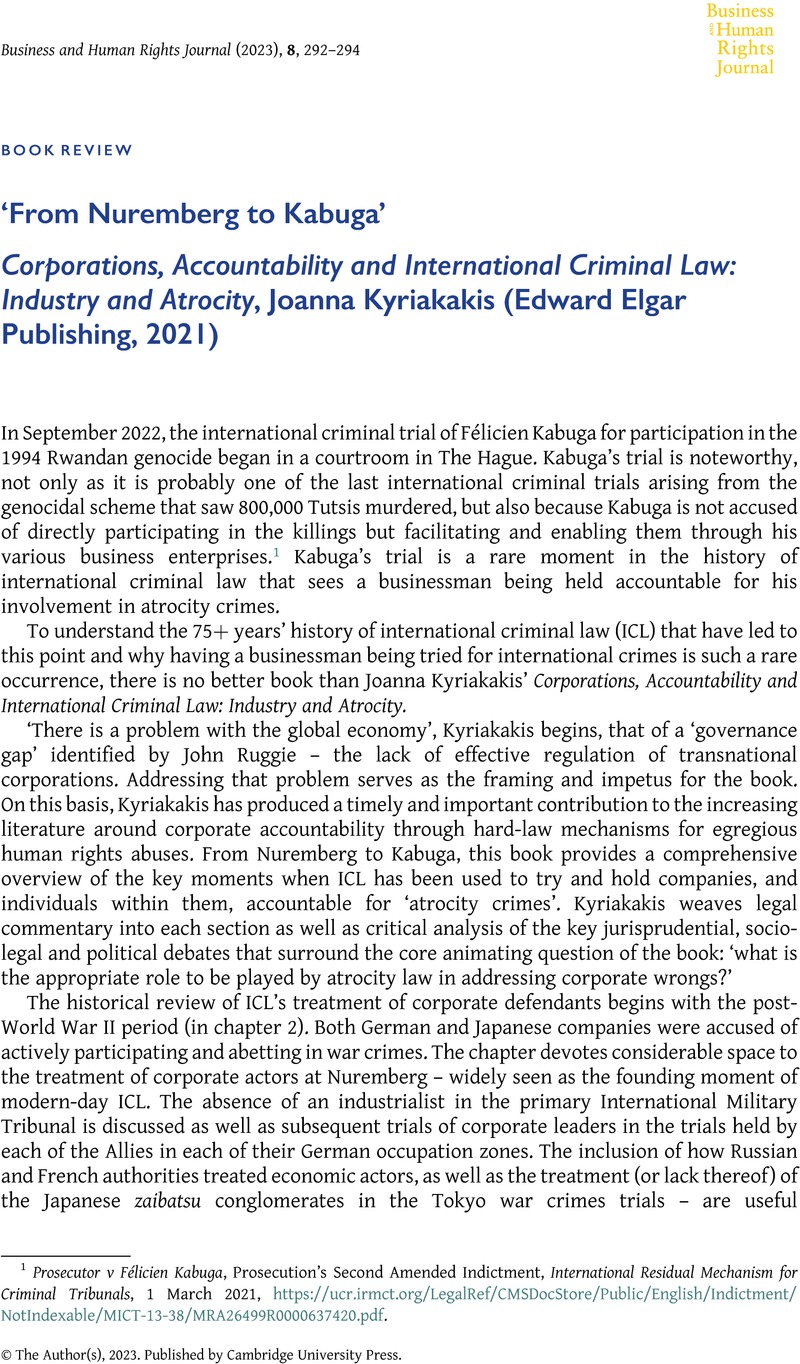No CrossRef data available.
Article contents
‘From Nuremberg to Kabuga’ - Corporations, Accountability and International Criminal Law: Industry and Atrocity, Joanna Kyriakakis (Edward Elgar Publishing, 2021)
Review products
Corporations, Accountability and International Criminal Law: Industry and Atrocity, Joanna Kyriakakis (Edward Elgar Publishing, 2021)
Published online by Cambridge University Press: 06 February 2023
Abstract
An abstract is not available for this content so a preview has been provided. Please use the Get access link above for information on how to access this content.

- Type
- Book Review
- Information
- Business and Human Rights Journal , Volume 8 , Issue 2: Special Issue: Beyond human rights due diligence: What else do we need? , June 2023 , pp. 292 - 294
- Copyright
- © The Author(s), 2023. Published by Cambridge University Press
References
1 Prosecutor v Félicien Kabuga, Prosecution’s Second Amended Indictment, International Residual Mechanism for Criminal Tribunals, 1 March 2021, https://ucr.irmct.org/LegalRef/CMSDocStore/Public/English/Indictment/NotIndexable/MICT-13-38/MRA26499R0000637420.pdf.


